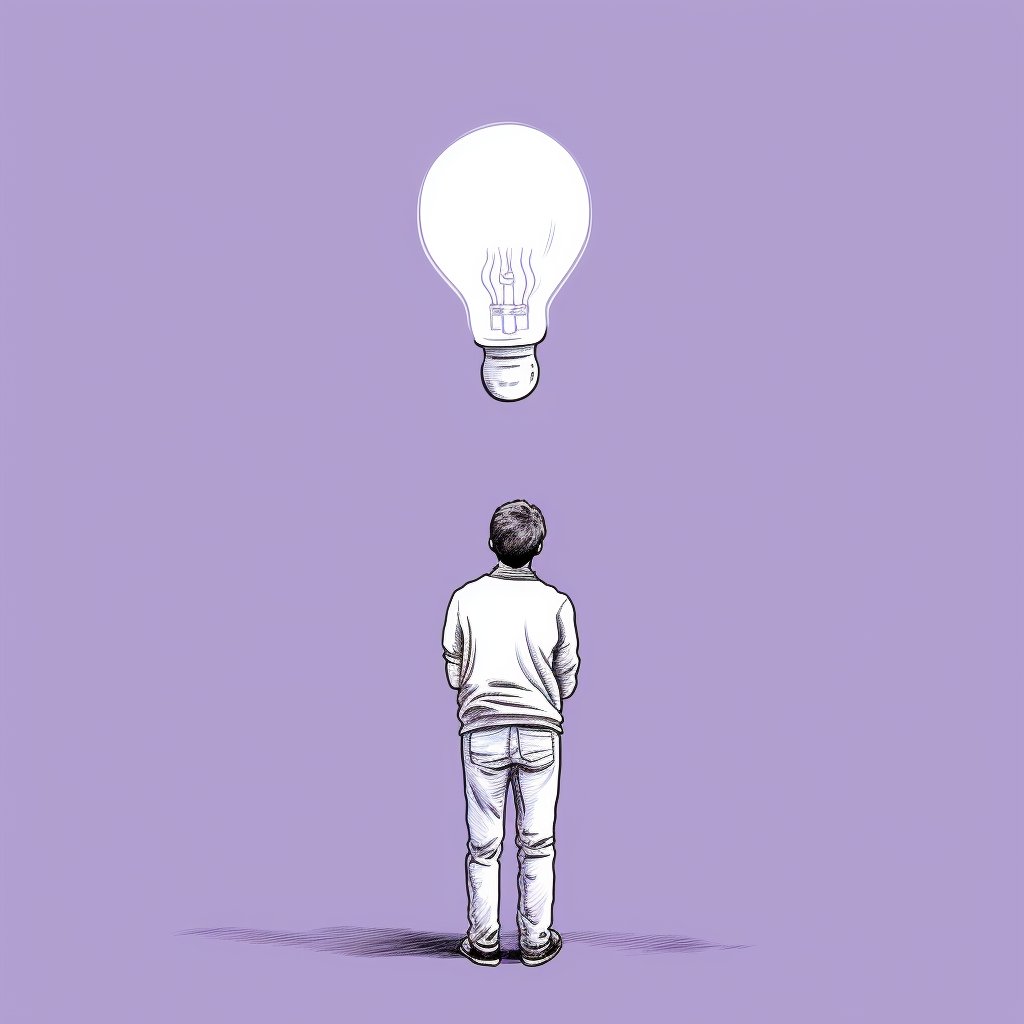
INTJ, which stands for Introverted, Intuitive, Thinking, and Judging, is one of the 16 personality types identified by the Myers-Briggs Type Indicator (MBTI). INTJs are known for their analytical minds, strategic thinking, and preference for solitude. They often excel in areas like problem-solving, planning, and long-term goal setting.
The purpose of this article is to explore the topic of INTJ and addiction by delving into how individuals with the INTJ personality type may be more or less susceptible to addiction. We’ll explore ways INTJs can protect themselves from addiction’s grasp and seek support if needed. So, let’s embark on this journey to uncover the complexities of INTJ addiction.
INTJ Personality
INTJ individuals are known for their unique set of personality traits that can significantly influence their behavior and decisions. These traits include a combination of:
- Introversion (I): INTJs tend to be introverted, meaning they find energy and introspection in solitude. They often enjoy spending time alone, reflecting on their thoughts and ideas.
- Intuition (N): INTJs are intuitive thinkers who rely on their inner world of ideas and concepts. They have a knack for seeing the big picture and thinking about future possibilities.
- Thinking (T): They are logical and analytical in their approach to problem-solving and decision-making. INTJs value reason and objectivity.
- Judging (J): INTJs are decisive and organized. They prefer structured environments and like to have plans in place.
Strengths and Weaknesses of INTJ Individuals
INTJ individuals possess a range of strengths that can contribute to their success, but these strengths can also interact with their vulnerabilities regarding addiction:
Strengths
- Strategic Thinkers: INTJs excel in long-term planning and are skilled at seeing patterns and connections that others may overlook.
- Independence: Their self-sufficiency and self-motivation enable them to accomplish their goals without constant external validation.
- Problem Solvers: INTJs thrive when faced with challenging problems, and their analytical minds make them adept at finding solutions.
Weaknesses
- Perfectionism: A desire for perfection can lead to stress and anxiety, potentially driving them to seek relief through addiction.
- Tendency to Isolate: INTJs may isolate themselves when facing challenges, reducing their support network and increasing their vulnerability to addiction.
- Difficulty Expressing Emotions: They may struggle to communicate their feelings, leading to emotional bottlenecks that could be a trigger for addiction.
How INTJ Personalities Approach Challenges and Decisions
INTJs approach challenges and decisions with a methodical and logical mindset. They typically:

- Gather Information: They seek out data and information to make informed choices.
- Plan Strategically: INTJs develop comprehensive plans to achieve their goals, often breaking them down into smaller, manageable steps.
- Evaluate Objectively: They assess situations from an objective standpoint, minimizing emotional biases.
In the context of addiction, these traits can be both an advantage and a vulnerability. Their analytical approach can help them recognize the signs of addiction, but their independence and reluctance to seek help may hinder recovery.
| Related: INTJ and Depression: What’s the Connection?
Addiction and Its Impact
Addiction is a profound and complex condition that affects both the mind and body. It’s not merely a matter of willpower or self-control. Instead, addiction is rooted in changes to the brain’s structure and function. When someone engages in addictive behaviors, their brain’s reward system is altered. Scientific studies have shown that these changes are associated with the compulsive use of substances or engagement in behaviors, even when they have negative consequences. This phenomenon can be particularly challenging for INTJ individuals, who often value self-control and rationality.

Common Types of Addiction
Addiction can manifest in various forms, including substance abuse and behavioral addictions. Substance abuse often involves the misuse of substances like alcohol, drugs, or prescription medications. Behavioral addictions, on the other hand, revolve around compulsive behaviors that provide a reward, such as gambling, overeating, or excessive internet use. INTJ individuals, with their analytical and sometimes perfectionist tendencies, may be prone to overwork or even addiction to intellectual pursuits, such as research, at the expense of their well-being.
The Consequences of Addiction
The consequences of addiction can be far-reaching and devastating. They affect not only the individual but also their relationships, career, and overall well-being. For INTJs, this can translate into a significant disruption of their carefully planned lives. The impact may include:
- Deteriorating physical and mental health
- Strained relationships and social isolation
- Occupational or academic difficulties
- Legal problems
- Financial hardship
Are INTJs More Prone to Addiction?
INTJ personalities, with their unique blend of traits, may have a particular susceptibility to addiction. While not all INTJs are destined for addiction, their characteristics can make them more vulnerable to certain addictive behaviors.

Several factors can contribute to the vulnerability of INTJs to addiction:
- Perfectionism: INTJs often strive for perfection in their endeavors. When they fall short of their high standards, it can lead to stress and anxiety, potentially driving them toward addictive behaviors.
- Tendency to Isolate: INTJs, as introverts, may isolate themselves when faced with challenges, reducing their support network. This isolation can increase their vulnerability to addiction.
- Difficulty Expressing Emotions: INTJs can struggle to articulate their feelings and emotions, which may result in emotional bottlenecks. These bottled-up emotions can be a trigger for addiction as they seek relief.
INTJ characteristics can play a significant role in the development of addiction. For example, an INTJ alcoholic might use alcohol as a way to cope with social anxiety, relax, or mute the constant stream of thoughts. Similarly, an INTJ drug addiction might be drawn to substances to escape from stress and pressure. Their preference for rational thinking can lead them to justify their addictive behaviors or underestimate the risks.
Addiction Triggers for INTJs
Addiction in INTJs can be influenced by various triggers and stressors that INTJ personalities might encounter. Here’s a closer look at some of these potential triggers:

- Work-related Stress: INTJs often have demanding careers or academic pursuits. The pressure to perform at a high level can lead to stress and, in some cases, reliance on addictive substances or behaviors as a coping mechanism.
- Relationship Challenges: INTJs might struggle with emotional expression and understanding the emotions of others. Relationship conflicts or breakups can be emotionally taxing, potentially pushing them toward addiction.
- Perfectionism: The relentless pursuit of perfection in their work or personal life can create immense stress and anxiety, which INTJs might attempt to alleviate through addictive behaviors.
- Social Isolation: As introverts, INTJs may have limited social connections, and social isolation can lead to feelings of loneliness and boredom, which may contribute to the development of addiction.
| Suggestion: Social Isolation in Depression: Overcoming & Connection
Coping Mechanisms for INTJ Addiction
INTJ addiction vulnerabilities can be mitigated through effective coping mechanisms. INTJs can employ various strategies to manage stress and reduce the risk of addiction:
- Mindfulness and Meditation: Practicing mindfulness can help INTJs stay grounded and reduce stress. Meditation techniques can also assist in calming their minds and preventing the urge to turn to addictive substances or behaviors.
- Physical Activity: Engaging in regular exercise can be an excellent stress-reliever for INTJs. It releases endorphins, which can improve mood and reduce the desire for addictive relief.
- Time Management: Careful planning and time management can reduce the pressure INTJs put on themselves. By organizing their tasks and goals, they can lower stress levels and the risk of addiction.
- Social Connection: While INTJs value their alone time, maintaining social connections is vital. Spending quality time with friends and loved ones provides emotional support and a sense of belonging, reducing feelings of isolation.

Self-Awareness in Preventing Addiction
Self-awareness and self-regulation are essential tools for INTJs to prevent addiction. By understanding their own tendencies and vulnerabilities, they can take proactive steps to avoid falling into the trap of addiction. Self-awareness allows INTJs to recognize when they are feeling overwhelmed, stressed, or triggered. Once they are aware of these emotional states, they can employ self-regulation techniques to manage them.
By developing self-awareness and self-regulation, INTJs can take control of their emotional well-being and reduce the risk of falling into addiction patterns. These skills can be powerful tools in maintaining a balanced and healthy life.
Seeking Help and Support
When it comes to addiction, professional help plays a crucial role in the recovery process. Addiction is a complex issue, and INTJs can benefit from the expertise of healthcare professionals, therapists, and addiction specialists. These experts can provide evidence-based treatments and guidance tailored to the specific needs of the individual.

Support Systems for INTJs with Addiction
INTJs seeking help for addiction can tap into a variety of support systems and resources. These include:
- 12-Step Programs: Groups like Alcoholics Anonymous (AA) and Narcotics Anonymous (NA) offer peer support and a structured approach to recovery.
- Therapy: Individual or group therapy can provide a safe space for INTJs to discuss their challenges and develop coping strategies.
- Online Communities: Many online forums and support groups cater to INTJs and individuals dealing with addiction, providing a platform for sharing experiences and seeking advice.
HealWiser’s Last Piece of Advice
Understanding the interplay between INTJ and addiction is crucial. INTJs’ traits, such as perfectionism, independence, and rational thinking, can make them both resilient and vulnerable to addiction. Recognizing these dynamics can help prevent the development of addiction in INTJs and support those already facing it.
If you’re an INTJ struggling with addiction or know someone who is, remember that help and support are available. Seeking professional guidance, utilizing coping strategies, and connecting with support systems can pave the way to recovery. Your unique personality traits can be assets in this journey.
Addiction is a complex issue, but with the right knowledge and support, recovery is not only possible but within reach. Don’t hesitate to seek help and take the first step towards a healthier, happier life.
Sharing your experiences can provide valuable insights and emotional support. So…
…share your story with HealWiser and others in the comments section below this post.





